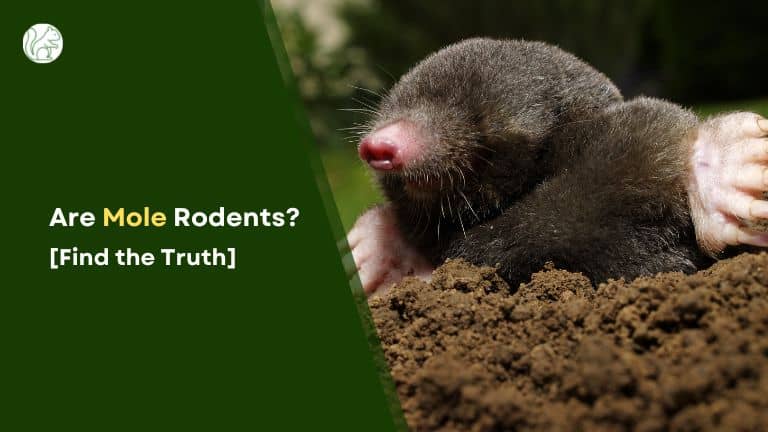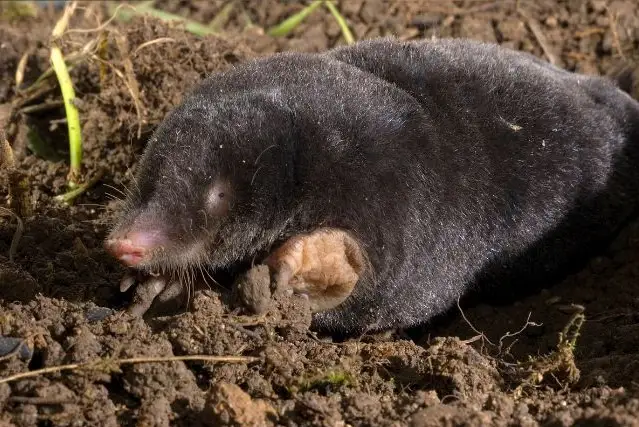Moles, often named pests, are always mentioned as a threat to plants. But in reality, they don’t eat plants. These natives of North America, Asia, and Europe live a subterranean life inside their tunnels.
But as they live inside the tunnels, they are often confused with rodents. So, is a mole a rodent or do they just look similar to rats or mice? Well, moles are not rodents no matter how similar they look!
Today, we are going to discuss mole and why it is not a rodent in detail. Take a look!

Are Moles and Squirrels Both Considered Rodents?
Yes, the squirrels and rodents truth is that both moles and squirrels are considered rodents. Although they have some differences in behavior and appearance, they belong to the same family. Moles are burrowing animals, while squirrels are known for their tree-dwelling habits. Nonetheless, they are both categorized as rodents.
Is a Mole a Rodent?
As we have mentioned above, moles are not rodents. Moles are from the family Talpidae from the order Eulipotyphla. These are mammals and naturally, small in size. They usually dig tunnels for a living.
Though they are small, they have an expanded range. You will get to see them on almost all continents.
However, they do not live in the weather of Antarctica. For their living preference, this species will choose any place where they can dig tunnels.
Why are Moles not Rodents?
We have made a list of why moles are rodents and what characteristics make them different. Let’s take a look!

Incisors
When we discuss the features of rodents, the first thing that comes up is their ever-growing incisor teeth. They have got strong incisor teeth. These constantly grow as long as they live.
And to keep the balance of their teeth and mouth, they must ensure that they keep chewing on things. But in the case of the moles, they don’t have these ever-growing teeth.
Compared to rodents, moles have 44 teeth. Their teeth don’t grow continuously. They have 12 incisors. The lower ones are smaller than the upper ones.
Canines
Another feature of rodents is they lack canine teeth. Well, most carnivore animals have canine teeth but as rodents are not carnivores, they have no canine teeth. Contrary to the rodents, the moles have canine teeth.
These teeth are sharp and pointy. The lower ones are larger here and the upper ones are smaller. Besides, they have molar teeth added to the other ones.
Diet
As you know about the teeth of moles, you can already guess that moles are carnivores. Yes, they are carnivores and so, they have to go canines. Their fundamental food source is earthworms.
Besides, they are into snails, spiders, beetles, and other small insects. They also gather hundreds to thousands of earthworms inside their tunnels. These are their food for the latter period.
As they require energy for digging the tunnels, they need to eat a lot. Rodents, on the other hand, are herbivores mostly, and in some cases, omnivores. They live on plants, nuts, and seeds.
Lifestyle
Yes, a lot of rodents live underground in the burrows just like the moles. However, moles prefer to stay underground more than rodents.
While rodents go out a lot in the hunt for food, moles stay in. They dig holes most of their lives. They keep digging tunnels to create worm traps to get their food.
Wrap Up
Yes, moles are considered pests, but they are beneficial to our environment. As they keep creating burrows or tunnels, they aerate the soil in the process. In the process, they fertilize the soil for humans. We should stop blaming them, right?
